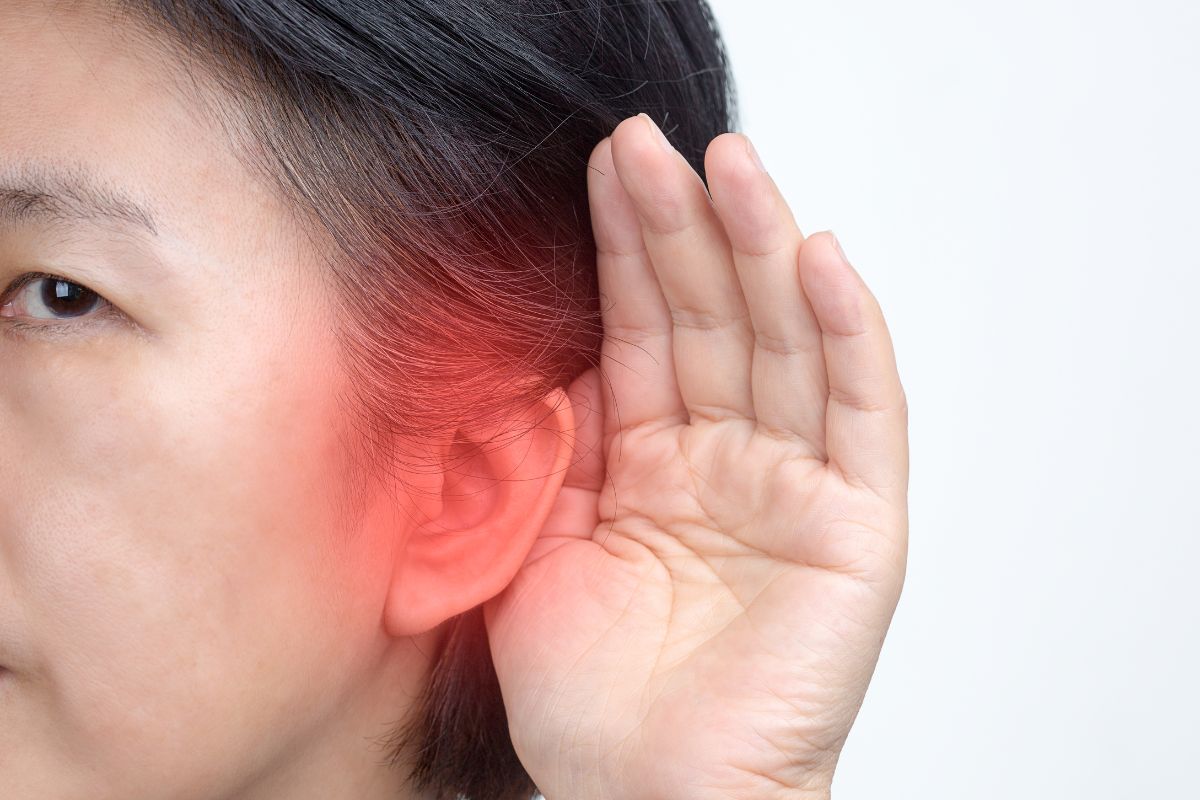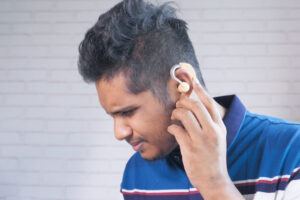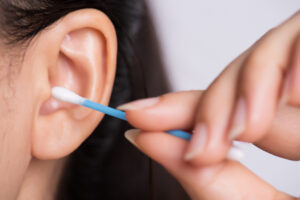Understanding Unilateral Hearing Loss
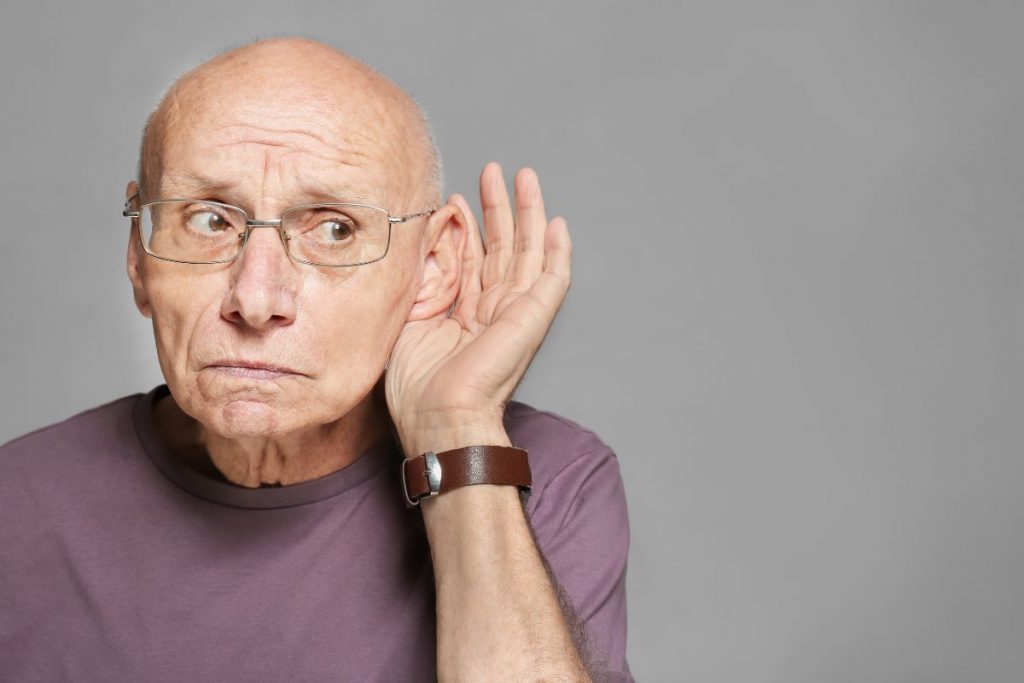
In the discourse presented here, Dr. Shree Rao provides Living with Unilateral Hearing Loss. She is the Best Doctor for Cochlear Implants.
Living with unilateral hearing loss presents unique challenges and considerations that impact various aspects of daily life. Individuals with this condition experience hearing loss in one ear while maintaining normal hearing in the other. Dr. Shree Rao, along with other experts in audiology, emphasizes the importance of understanding the implications of unilateral hearing loss and adopting strategies to navigate its effects effectively. This introduction aims to explore the experiences of individuals living with unilateral hearing loss, shed light on its causes and impacts, and offer insights into coping mechanisms and support options available. With a focus on fostering awareness and empowerment, this guide provides valuable information for both individuals with unilateral hearing loss and those seeking to support them in their journey.
Causes and Risk Factors
Causes of Unilateral Hearing Loss
Congenital Factors
- Genetic Factors: Certain genetic mutations or syndromes, such as Waardenburg syndrome or Pendred syndrome, can result in congenital unilateral hearing loss.
- Maternal Infections: Infections contracted by the mother during pregnancy, such as cytomegalovirus (CMV) or rubella, can lead to hearing loss in the fetus.
- Birth Trauma: Complications during childbirth, including birth asphyxia or head trauma, may result in unilateral hearing loss.
Acquired Factors
- Noise Exposure: Prolonged exposure to loud noises, either occupational (e.g., industrial machinery) or recreational (e.g., concerts, firearms), can damage the delicate structures of the inner ear, leading to unilateral hearing loss.
- Traumatic Injury: Head injuries, skull fractures, or traumatic brain injuries can damage the auditory nerve or inner ear structures, causing unilateral hearing loss.
- Infections: Severe infections such as meningitis or otitis media (middle ear infection) can damage the auditory nerve or inner ear structures, resulting in unilateral hearing loss.
- Tumors: Benign or malignant tumors, such as acoustic neuromas or meningiomas, affecting the auditory nerve or inner ear can cause unilateral hearing loss.
- Ototoxic Medications: Certain medications, such as aminoglycoside antibiotics or high-dose aspirin, can have toxic effects on the auditory system, leading to unilateral hearing loss.
- Aging: Presbycusis, age-related hearing loss, can affect one ear more than the other, resulting in unilateral hearing loss in older adults
Risk Factors for Unilateral Hearing Loss
- Family History: A family history of hearing loss may increase the risk of developing unilateral hearing loss, particularly if genetic factors are involved.
- Chronic Health Conditions: Chronic conditions such as diabetes, hypertension, or cardiovascular disease may predispose individuals to vascular-related hearing loss, affecting one ear asymmetrically.
- Environmental Factors: Exposure to environmental pollutants, smoking, or secondhand smoke may contribute to vascular compromise or inflammation in the auditory system, increasing the risk of unilateral hearing loss.
Diagnosis and Assessment
The healthcare provider gathers information about the individual’s medical history, including any known risk factors, exposure to loud noise, history of ear infections, or family history of hearing loss. Details about the onset and progression of hearing loss, associated symptoms, and any recent trauma or illnesses are documented to provide insights into potential underlying causes.
A physical examination of the ears, nose, and throat is conducted to assess for visible abnormalities, signs of infection, or structural issues that may contribute to hearing loss. Specialized instruments, such as an otoscope, may be used to examine the ear canal and eardrum for signs of damage or inflammation.
Pure-tone audiometry measures the individual’s ability to hear sounds at different frequencies and intensities. Speech recognition tests evaluate the individual’s ability to understand speech in quiet and noisy environments, helping to assess their functional hearing abilities. Tympanometry measures the movement of the eardrum in response to changes in air pressure, providing information about middle ear function and the integrity of the tympanic membrane.
Depending on the suspected cause of unilateral hearing loss, imaging studies such as magnetic resonance imaging (MRI) or computed tomography (CT) scans may be recommended to visualize the structures of the inner ear, auditory nerve, or brain. Imaging studies can help identify abnormalities such as tumors, structural malformations, or other lesions that may be contributing to hearing loss.
Auditory brainstem response (ABR) testing measures the electrical activity of the auditory nerve and brainstem in response to sound stimuli. It is often used to assess the integrity of the auditory pathways and detect abnormalities affecting the brainstem or auditory nerve. Balance assessment may be conducted to assess balance and spatial orientation abilities since the inner ear plays a role in both hearing and balance.
The impact of unilateral hearing loss on daily functioning, communication abilities, and quality of life is evaluated through self-report questionnaires or interviews. Functional assessments help healthcare providers understand the individual’s unique challenges and tailor treatment recommendations to address their specific needs.
Impact on Daily Life
Communication Challenges:
Unilateral hearing loss can make it difficult to localize sound and determine the direction of sound sources accurately. This can lead to challenges in understanding speech, especially in noisy environments or situations with multiple speakers. Individuals with unilateral hearing loss may struggle to follow conversations, particularly when the speaker is on their impaired side. As a result, they may experience frustration, stress, or embarrassment in social settings.
Academic or Work Performance:
In academic or work settings, unilateral hearing loss may impact performance and productivity. Difficulty hearing lectures or participating in group discussions can hinder learning outcomes for students with unilateral hearing loss. In professional environments, challenges in understanding verbal instructions, meetings, or phone calls may affect job performance and career advancement opportunities.
Safety Concerns:
Unilateral hearing loss can pose safety risks, especially in situations where auditory cues are essential for situational awareness. For example, individuals may have difficulty detecting approaching vehicles while crossing the street or hearing warning signals in hazardous environments. In emergency situations, the inability to localize sound accurately can delay response times and increase the risk of accidents or injuries.
Social Isolation:
The impact of unilateral hearing loss on communication abilities and participation in social activities can lead to feelings of isolation or loneliness. Individuals may avoid social gatherings or withdraw from social interactions due to difficulties in understanding conversations or feeling self-conscious about their hearing loss. Over time, social isolation can contribute to mental health issues such as depression, anxiety, or low self-esteem.
Emotional Well-being:
Coping with the challenges of unilateral hearing loss can take a toll on emotional well-being and quality of life. Feelings of frustration, anxiety, or inadequacy may arise from difficulties in communication, academic or work performance, and social interactions. Coping strategies such as denial or avoidance may temporarily alleviate distress but can ultimately exacerbate feelings of isolation and affect mental health.
Impact on Relationships:
Unilateral hearing loss can strain interpersonal relationships, particularly with family members, friends, or romantic partners. Misunderstandings or conflicts arising from communication difficulties may lead to frustration, resentment, or strain in relationships. Effective communication strategies, mutual understanding, and support from loved ones can help mitigate the impact of unilateral hearing loss on relationships.
Treatment and Management Options
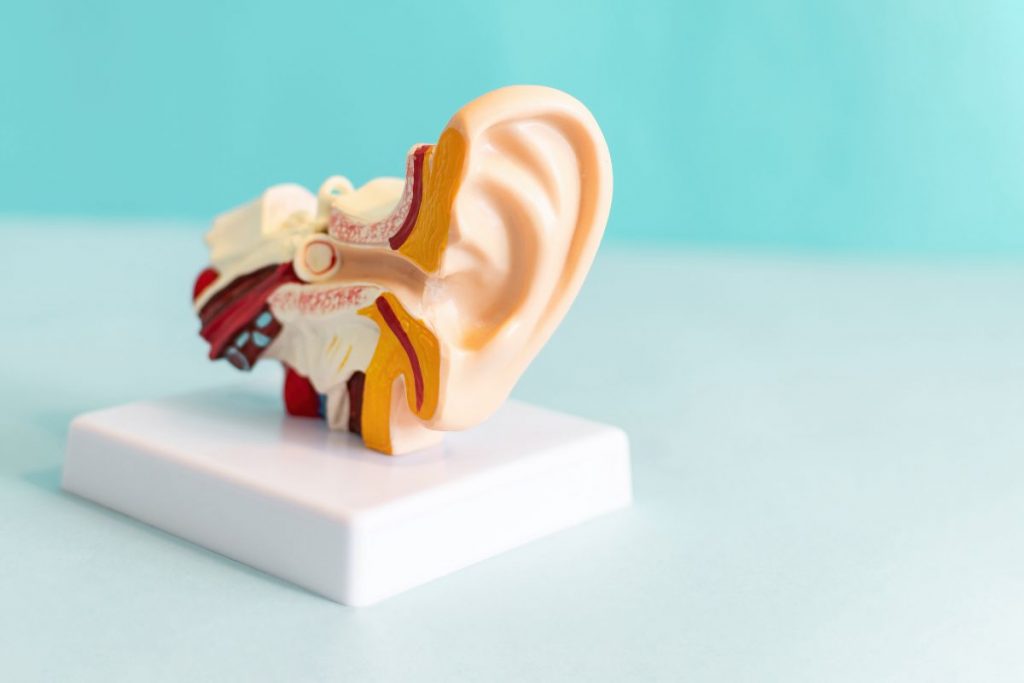
Hearing Aids:
Hearing aids are commonly prescribed for individuals with unilateral hearing loss to amplify sound and improve audibility. Contralateral routing of signals (CROS) hearing aids or bilateral hearing aids with directional microphones can help transmit sound from the impaired ear to the better ear, enhancing speech understanding and localization abilities. Hearing aids can be customized to meet individual preferences and lifestyle needs.
Bone-Anchored Hearing Systems (BAHS):
Bone-anchored hearing systems, such as bone-anchored hearing aids (BAHAs) or bone conduction implants, are alternative options for individuals with conductive or mixed unilateral hearing loss. These devices bypass the outer and middle ear by transmitting sound vibrations directly to the cochlea through bone conduction, bypassing the affected ear. BAHS can be beneficial for individuals with single-sided deafness or chronic middle ear conditions.
Contralateral Routing of Signal (CROS) Systems:
CROS systems consist of a microphone placed on the impaired ear and a transmitter that wirelessly sends sound signals to a receiver on the better ear. By capturing sound from the impaired side and transmitting it to the contralateral ear, CROS systems help improve speech understanding and localization abilities in individuals with unilateral hearing loss. CROS systems can be worn as discreet behind-the-ear devices or integrated into glasses frames.
Cochlear Implants:
Cochlear implants are electronic devices surgically implanted into the inner ear to bypass damaged hair cells and directly stimulate the auditory nerve. While traditionally used for individuals with bilateral severe to profound hearing loss, cochlear implants may also be considered as a treatment option for select individuals with unilateral hearing loss who derive limited benefit from hearing aids. Cochlear implants can provide improved speech perception and localization abilities in suitable candidates.
Assistive Listening Devices (ALDs):
Assistive listening devices are designed to enhance communication in challenging listening environments by reducing background noise and improving signal clarity. ALDs include devices such as FM systems, infrared systems, loop systems, and personal amplifiers, which can be used in conjunction with hearing aids or independently to improve speech understanding in noisy settings, classrooms, meetings, or public venues.
Communication Strategies:
Learning effective communication strategies can help individuals with unilateral hearing loss navigate social interactions and improve understanding in various situations. Strategies may include using visual cues such as lipreading, maintaining eye contact, facing the speaker directly, advocating for preferred seating arrangements in noisy environments, and asking for repetitions or clarifications when needed.
Auditory Training:
Auditory training programs are designed to improve auditory processing skills, speech perception, and listening abilities in individuals with hearing loss. These programs involve structured exercises and activities aimed at enhancing auditory discrimination, sound localization, and comprehension skills through repetitive practice and feedback. Auditory training can be conducted with the assistance of a speech-language pathologist or audiologist.
Surgical Interventions:
In some cases, surgical interventions may be recommended to address underlying causes of unilateral hearing loss, such as chronic middle ear conditions, congenital abnormalities, or acoustic neuromas. Surgical procedures may include tympanoplasty, ossicular chain reconstruction, cochlear implantation, or tumor resection, depending on the specific diagnosis and individual patient factors.
Counseling and Support:
Counseling and psychosocial support are integral components of holistic care for individuals with unilateral hearing loss. Counseling sessions with audiologists, speech-language pathologists, or mental health professionals can provide emotional support, coping strategies, and guidance on adapting to life with hearing loss. Support groups and online forums also offer opportunities for individuals to connect with others facing similar challenges and share experiences, resources, and encouragement.
Conclusion
In conclusion, living with unilateral hearing loss presents unique challenges that require adaptation and resilience. Throughout this guide, individuals have gained valuable insights into the causes, impacts, and coping mechanisms associated with unilateral hearing loss. Dr. Shree Rao and other experts underscore the importance of seeking support, utilizing assistive devices, and advocating for accommodations to enhance quality of life. By fostering awareness and understanding, this resource aims to empower individuals with unilateral hearing loss to navigate their experiences with confidence and to cultivate a supportive environment that fosters inclusivity and accessibility.

Why consult EarSurgeon, Dr. Shree Rao?
Dr. Shree Cuddapah Rao is acclaimed as one of the best pediatric ENT specialists in Hyderabad. With 10+ years of deep domain experience in the field of ENT, she is the director at Dr. Rao’s ENT Super Specialty Hospital. She underwent specialized training in Rhinoplasty / Facial Plastic surgery at Singapore General Hospital, Singapore. She also underwent advanced training in cochlear implant surgery under Padmashri Dr. Milind V Kirtane and had a Fellowship in a cochlear implant. Having performed over 200 successful cochlear implants for patients worldwide, Dr. Shree Cuddapah Rao is also the recipient of several prestigious accolades in the domain of ENT. Dr. Shree Rao is one of the best ent doctor in hyderabad, to book an appointment click here.
Are you looking for
then you have landed at right place!

